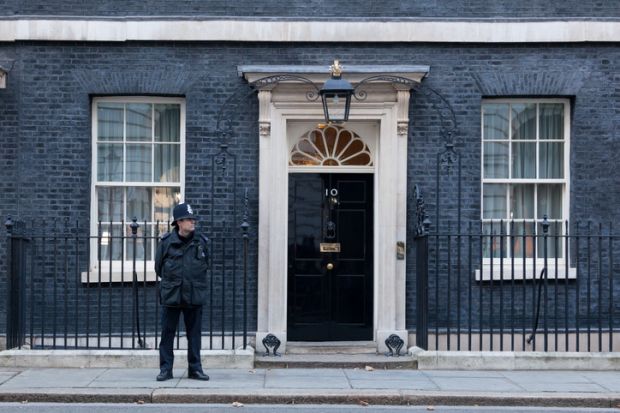Downgrading the role of UK science minister to a junior position will make it much harder for the country to hit its ambition to spend 2.4 per cent of gross domestic product on research and development, a former Westminster insider has warned.
Speaking at Times Higher Education’s UK Academic Salon, Nick Hillman, director of the Higher Education Policy Institute, said he was “very pessimistic” about the UK’s chances of reaching its stated goal given the failure of previous administrations to come close to similar targets.
Mr Hillman, who was a special adviser to Lord Willetts while he was universities minister in David Cameron’s government, noted that Tony Blair had vowed in 2004 to spend at least 2.5 per cent of GDP on research and development within a decade. Since this promise was made, spending has only increased by about 0.1 per cent of GDP, standing at about 1.7 per cent at present, he told the audience event, which was supported by Huawei.
“I would be absolutely delighted if we got anywhere near 2.4 per cent because the precedents are very poor,” said Mr Hillman, who also pointed to similar broken promises made by other developed countries around this target.
Despite this week’s Queen’s Speech stating that the UK government would “oversee the fastest ever increase in public funding for research and development”, to £22 billion a year by 2024-25, Mr Hillman claimed that the peripheral role of the UK’s science minister, Amanda Solloway, told a different story about the importance of science within government.
Unlike previous science ministers, Ms Solloway was not entitled to attend Cabinet meetings, nor did her portfolio include universities, following the decision to split the ministerial brief in February 2020, with Michelle Donelan leading on university matters, said Mr Hillman.
While applauding her work on the creation of last year’s R&D Roadmap, Mr Hillman observed that “Amanda Solloway is a rather junior minister” and that science’s biggest champion in recent years, Dominic Cummings, the prime minister’s former chief aide, has also left Downing Street.
“No one [in government] has said: ‘Let’s downgrade the role of science in Whitehall’, but sometimes there are reshuffles – my experience in Westminster is that…these things happen by accident rather than design,” said Mr Hillman, who noted that the post of business secretary above Ms Solloway – now Kwasi Kwarteng – had also “changed [hands] several times”, a change that was likely to make it difficult to establish strong relations within her own department.
“I would like to see science have a voice in Cabinet as was the case during both Labour and Conservative administrations,” Mr Hillman said.
More broadly, universities needed to step up their lobbying efforts if they wanted to secure additional research funding, Mr Hillman added.
“They should be getting backbench MPs onto campus and showing them exactly [what researchers] are doing,” he said.
Register to continue
Why register?
- Registration is free and only takes a moment
- Once registered, you can read 3 articles a month
- Sign up for our newsletter
Subscribe
Or subscribe for unlimited access to:
- Unlimited access to news, views, insights & reviews
- Digital editions
- Digital access to THE’s university and college rankings analysis
Already registered or a current subscriber? Login








